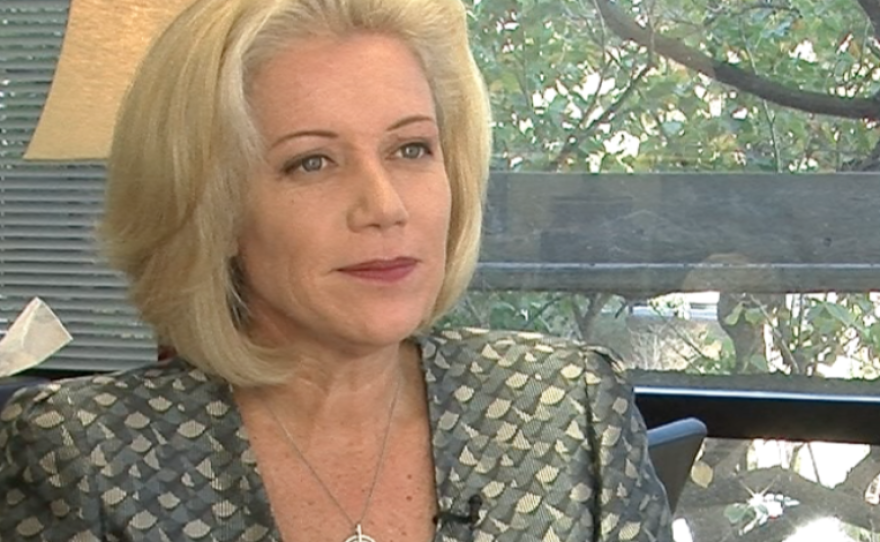Patient eligibility and money weren’t the only problems at San Diego Hospice, poor patient care almost cost the business its Medicare contract in 2012.
Documents obtained by the KPBS and inewsource Investigations Desk provide the first indication that questions about patient care, not just problems with documentation and eligibility, were plaguing one of the country's oldest and most respected hospices.
Inspection reports obtained through the Freedom of Information Act revealed various kinds of violations: patients were given the wrong doses of medication, one man had bedsores and was lying in his own blood, and nearly 800 patients were sent home with poorly labeled syringes that could have put them at risk of an overdose.
In January, 2012, Medicare sent a letter to San Diego Hospice President and CEO Kathleen Pacurar, stating the hospice no longer met the requirements of a Medicare provider.
“San Diego Hospice & The Institute for Palliative Care's Medicare agreement may be terminated effective February 29, 2012,” the letter from the Centers for Medicare and Medicaid Services stated.
“A re-certification survey from September 2011 identified serious instances of noncompliance including violations that posed immediate jeopardy to the health and safety of patients,” it stated.
San Diego Hospice corrected the problems and in February 2012, the termination process was stopped, however, survey reports obtained by the Investigations Desk showed violations continued in 2011 and 2012.
According to inspection reports, two people died following morphine overdoses. And in early 2011, one man was found with a “large, split open wound on the scrotum, bruising on the tailbone, and buttocks with developing pressure sores, a blood soaked brief, and a blood stained bed pad.”
Nurses had failed to change his briefs.
“That was fully investigated and we dealt with the individuals, and there are processes in place to prevent that from happening,” San Diego Hospice Chief Clinical Officer Sharon O’Mary said regarding the bedsores.
The nurses involved were fired after the incident, she said.
Another patient was given five times the prescribed dose of morphine because the medication pump was not programed correctly. The patient died 24 hours later.
The same mistake with the pumps happened two more times within 40 days.
A fourth patient did not receive enough pain medication because the pump was not properly programmed.
In March 2012 the hospice reported another morphine overdose - this time a caregiver gave 20 times the prescribed dose of morphine to a patient because of confusion over the size of a syringe. The patient died within one hour.
“It was a patient who was at the end of her life, she was imminently dying, had been for several days prior to that event. The patient did die but it is not necessarily related specifically to that event,” O’Mary said.
The morphine was included in an “e-kit” sent home with patients to help control pain and shortness of breath. The kit included two different kinds of medications and two different sized syringes. The syringes were not properly labeled and caregivers were not properly instructed on to use the syringes, according to the investigators report.
The hospice had given these kits to 787 patients.
San Diego Hospice reported the overdose, but it did not have a plan in place to fix the problem until Medicare Investigators declared “immediate jeopardy” - a crisis situation where “the health and safety of individual(s) are at risk,” according to the Centers for Medicare and Medicaid state operations manual.
The hospice eventually replaced the syringes in all of the kits, and improved labelling and instructions.
San Diego Hospice filed for bankruptcy last month - stating that a Medicare audit questioning patient eligibility and proper documentation had lead to their financial demise. President and CEO Kathleen Pacurar stated several times in media reports the quality of patient care had not been an issue.
While that may have been true of the financial audit of San Diego Hospice, the Medicare investigation reports shows there was a problem.
San Diego Hospice not only collected hundreds of millions of dollars in Medicare reimbursements over the years - it also received tens of millions in donations from members of the community.
O’Mary stands by the organization.
“Outside of particular incidents, where there is room for improvement, we have provided excellent care. The community has recognized that and maintained its support.”








